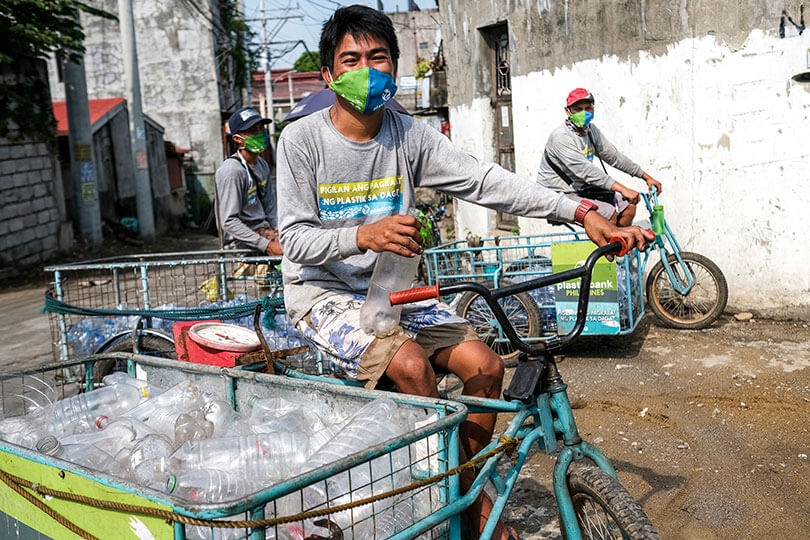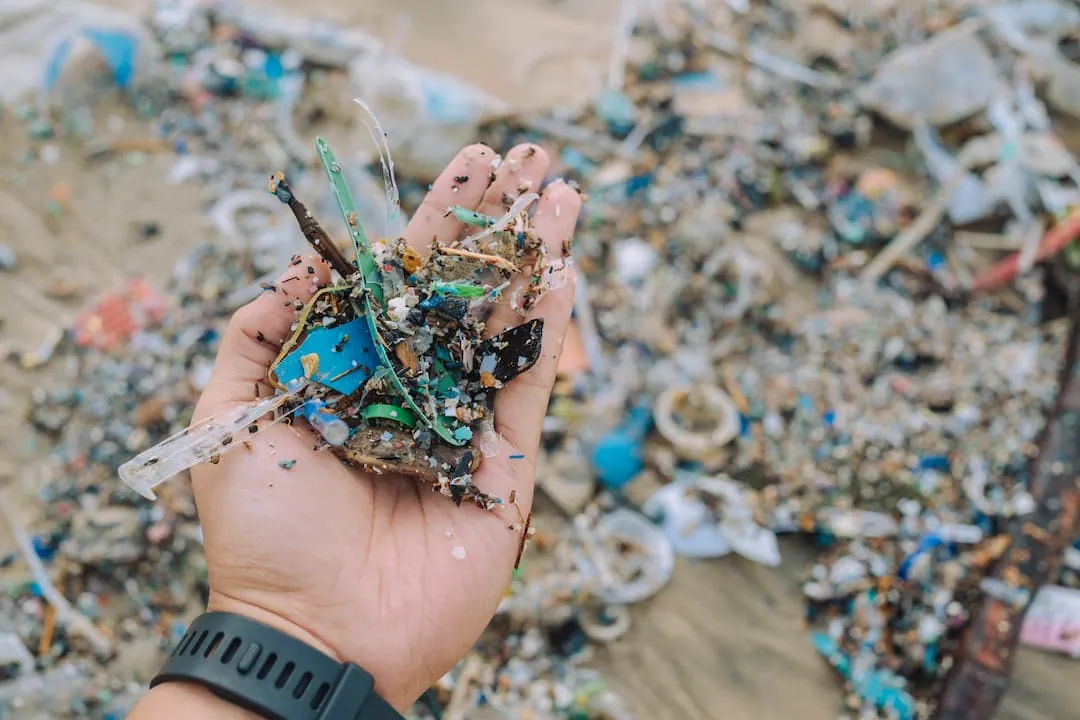 News
News

Plastic Overshoot Day marks a critical environmental threshold—it’s the day when a country’s plastic waste exceeds its capacity to manage it sustainably within a year. This concept, analogous to the more familiar Earth Overshoot Day, highlights the point at which our consumption of plastic resources surpasses the earth’s ability to absorb its impact1. This day serves as a stark reminder of the urgent need for improved plastic management and recycling infrastructures across the globe.
Monitoring plastic waste is crucial for several reasons. First, it helps identify and quantify the sources and types of plastic contributing most to pollution. This knowledge is essential for targeting interventions and policies that reduce waste and enhance recycling efforts. Additionally, understanding the flow of plastic waste helps assess communities’ ecological footprint, guiding them toward more sustainable practices. By monitoring these metrics, nations can prevent the environmental degradation caused by plastic, safeguard the environmental and marine life, and maintain ecological balance. Ultimately, the observance of Plastic Overshoot Day underscores our current challenges and galvanizes collective action toward a more sustainable future, highlighting the critical need to manage our plastic footprint responsibly.
Understanding the mismanaged waste index
Plastic Overshoot Day releases a yearly report publishing the Mismanaged Waste Index (MWI) to quantify how effectively a country manages its plastic waste; the higher the percentage is, the less management it has. It reflects the proportion of plastic waste that is inadequately disposed of, potentially entering the environment, mainly marine ecosystems. This index helps identify regions where waste management systems are lacking and provides a benchmark for measuring progress in waste management practices over time.

Definition of mismanaged waste index (MWI)
The Mismanaged Waste Index is calculated based on the amount of plastic waste a country generates compared to how much of it escapes proper disposal and management systems.2 This includes waste littered or inadequately disposed of in open, unsecured landfills, susceptible to being carried into waterways and oceans. A higher MWI indicates a more significant percentage of plastic waste that is not managed correctly, which points to severe inefficiencies in waste management protocols and systems.
Top countries with the most mismanaged waste index according to Plastic Overshoot Day
Many countries struggle with managing plastic waste due to extensive plastic consumption, inadequate recycling facilities, and insufficient waste disposal systems. Countries with high Mismanaged Waste Indices (MWIs) often include those that are rapidly urbanizing, have growing populations, and are experiencing a surge in consumerism, yet lack the necessary infrastructure for effective waste management. Following Eart Action (the non-for-profit arm that created Plastic Overshoot Day), here is a complete list of the countries with the most mismanaged waste index in January 2024:

Also, the Plastic Overshoot Day report details that 12 countries are predominantly responsible for 60% of the world’s mismanaged plastic waste. These countries include China, India, Russia, Brazil, Mexico, Vietnam, Iran, Indonesia, Egypt, Pakistan, the United States, and Turkey. These nations are highlighted due to their significant contributions to global plastic pollution, emphasizing their challenges in managing waste effectively.4

Archetypes criteria from Plastic Overshoot Day
Plastic Overshoot Day categorizes countries with archetypes based on plastic waste production and management strategies3. Each archetype helps to understand the different roles nations play in the global context of plastic pollution:
1. The overloaders: These countries generate a high amount of plastic waste but efficiently manage it within their borders. However, their strategy involves exporting a significant part of this waste to other countries, which can lead to environmental strain in the recipient countries. This archetype highlights a reliance on global waste trade that can potentially shift the pollution burden.
2. The self-sustainers: This group represents countries with moderate per capita plastic waste generation. They manage to handle their waste primarily within their borders, suggesting self-sufficiency in waste management. However, there is still room for improvement in reducing the volume of waste generated or enhancing recycling and reuse practices.
3. The transactors: These countries are characterized by their robust waste management systems and high levels of plastic waste generation. They manage their waste well and engage in the international trade of plastic waste, often exporting it. This archetype reflects a well-developed infrastructure for waste management but also points to a potential over-reliance on the global waste market, which can have various environmental and social implications.
Each archetype underscores different aspects of the global plastic waste challenge, from internal management effectiveness to international dependencies and impacts.
Improvements and innovations
Plastic Bank stands as a solution in the global fight against plastic pollution, offering programs that align well with the innovations and improvements noted in countries with high Mismanaged Waste Index (MWI). Here’s how Plastic Bank contributes to these efforts:
1. Innovative plastic collection programs: Plastic Bank supports sustainability initiatives by empowering individuals to gather plastic waste and exchange it for additional income and social benefits. This model adds a direct incentive for recycling, making recycling accessible and rewarding for the community. This approach not only promotes recycling but also provides social and economic benefits to its members.
2. International partnerships: Plastic Bank forms strategic partnerships with global corporations, NGOs, and local entities to enhance its impact. These partnerships help expand collection communities and set up plastic for recycling. By collaborating with companies that integrate Social Plastic® into their products, Plastic Bank helps create a market for recycled plastic, reducing the demand for virgin materials.
3. Community-based Initiatives: At the heart of Plastic Bank’s model is a community-based approach. It empowers local communities to manage their plastic waste by providing them with the means to gather and exchange plastic, which is then recycled and brought back into the supply chain. This grassroots-level involvement is crucial for sustainable waste management and mirrors the success of other community-led initiatives noted in high MWI countries.

Plastic Bank not only helps reduce plastic pollution but also fosters sustainable community development, economic empowerment, and environmental stewardship. These efforts make Plastic Bank a vital ally in the global challenge of plastic waste management, particularly in regions struggling with high levels of mismanaged plastic waste.
Conclusion
Plastic Overshoot Day serves as a crucial reminder of our urgent need to address the global plastic pollution crisis. It underscores the necessity for nations to enhance their waste management systems, adopt sustainable practices, and foster global cooperation. As we mark this day, it is a call to action for governments, businesses, and individuals to intensify their efforts, innovate solutions, and commit to a sustainable future where plastic waste no longer overshadows our environmental responsibilities
Plastic Bank’s innovative approach to addressing the global crisis of plastic pollution embodies a powerful model of how environmental challenges can be transformed into opportunities for sustainable development. Through its effective plastic collection, strategic international partnerships, and community-based initiatives, Plastic Bank not only mitigates the impacts of plastic waste but also empowers communities, fosters economic growth, and promotes environmental stewardship.
As we continue to confront the escalating issue of plastic pollution, the work of organizations like Plastic Bank offers hope and a clear pathway toward a more sustainable and equitable world. Their efforts highlight the importance of collective action and the significant role innovative solutions play in achieving global sustainability goals.
We encourage you to visit Plastic Bank’s official website to learn more about the company’s mission, vision, and values. There, you can find comprehensive information about Plastic Bank’s commitment to reducing plastic pollution, partners, and core beliefs, providing you with a more in-depth understanding of its work.
- Sarah Perreard, et al. “Plastic Overshoot Day – Report 2024,” EA-Earth Action, 2024, https://plasticovershoot.earth/
- Sarah Perreard, et al. “Plastic Overshoot Day – Report 2024,” EA-Earth Action, 2024, https://plasticovershoot.earth/
- Sarah Perreard, et al. “Plastic Overshoot Day – Report 2024,” EA-Earth Action, 2024, https://plasticovershoot.earth/
- Sarah Perreard, et al. “Plastic Overshoot Day – Report 2024,” EA-Earth Action, 2024, https://plasticovershoot.earth/






